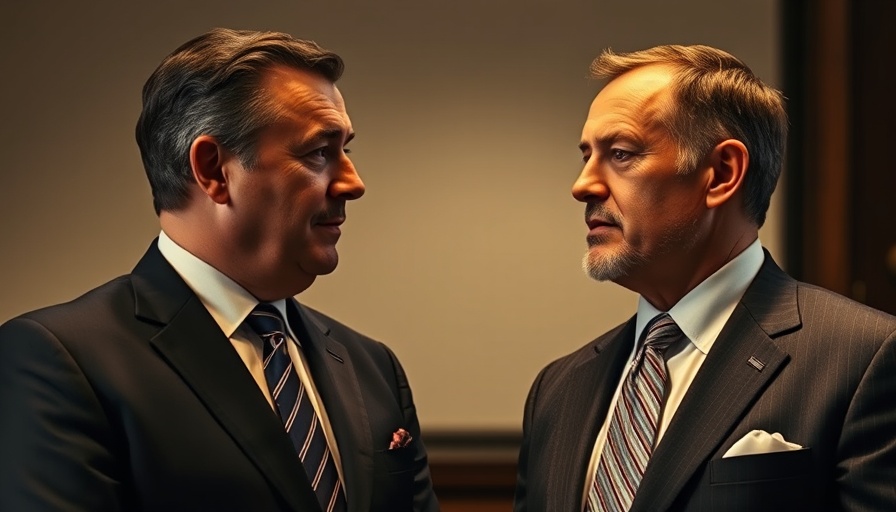
A Tense Prelude to the 2025 Presidential Elections in Ivory Coast
In the wake of Ivory Coast's impending presidential elections, scheduled for later this year, the political climate is fraught with tension and political maneuvering. As the nation prepares to potentially elect a new leader, current president Alassane Ouattara maintains a strategic distance from Tidjane Thiam, the former finance minister and a key figure in the opposition. Their relationship is at a crossroads, with both men representing pivotal factions in a political landscape that has weathered significant strife.
Historical Context: Electoral Challenges and Political Turbulence
Ivory Coast's history of electoral violence looms large over the upcoming elections. Since gaining independence from France, the nation has faced political upheaval that has resulted in loss of life and civil unrest, particularly during the 2010-2011 election crisis when the refusal of the then-incumbent Laurent Gbagbo to concede defeat led to armed conflict. This pattern of political turmoil has made any election a high-stakes affair, with fears of revived tensions always lingering. As Ouattara seeks a fourth term, the stakes are higher than ever with fears of polarization and violent backlash.
The Rise of Tidjane Thiam: An Opposition Figure to Watch
The dynamics surrounding Tidjane Thiam’s anticipated candidacy have attracted significant attention. Having served as the CEO of Credit Suisse and the country’s finance minister, his expertise positions him as a formidable challenger. Thiam's potential leadership could signal a shift in political tactics, emphasizing economic growth and connectivity to global trade, particularly in light of initiatives like the African Continental Free Trade Area (AfCFTA) aimed at decolonization and economic partnership across Africa.
Power Plays: The Call for Unity Amidst Division
While Ouattara seems hesitant to fully embrace Thiam, grassroots initiatives are attempting to bridge the divide. Notably, former French president Nicolas Sarkozy has committed to mediating discussions to foster unity, a testament to the existing tensions that threaten to polarize the nation once again. These goodwill efforts signify an urgent need for collaboration to mitigate the risk of divisive politics impacting the fabric of Ivorian society.
The Role of External Influences: Navigating Complexity
As political maneuvering unfolds, the backdrop is further complicated by external influences. Notably, international interest from nations such as Russia aims to exploit local unrest and dissatisfaction with the government. Observers warn of targeted disinformation campaigns that could destabilize Ivorian democracy. It emphasizes the necessity for local leaders and civil society to remain vigilant against such tactics while reinforcing democratic values.
2025 Elections: A Pivotal Moment for Democracy in Côte d'Ivoire
The 2025 elections present a unique opportunity for Côte d’Ivoire to showcase democratic resilience. The credibility gained from recent electoral exercises bodes well, with the Independent Electoral Commission facilitating significant voter registration drives and public engagements. This preparatory work creates a landscape where a transition of power can occur without resort to violence, fostering hope for a peaceful and democratic future.
Implications for Ivorian Society: Community and Cohesion
Voter engagement and the investment in public education regarding the electoral process could strengthen democracy, yielding benefits of enhanced governance and economic growth. As the election approaches, it is vital for Ivorian professionals and communities to foster dialogue that emphasizes shared values over divisions, creating an environment conducive to progress and sustainable development.
Conclusion: The Future of Côte d'Ivoire
As the 2025 presidential election approaches, the interplay of historical conflicts and the potential for new leadership adds a complex layer to Ivorian politics. Leaders must endeavor to articulate a vision for unity that transcends past grievances while addressing contemporary issues such as governance, economic empowerment, and human rights. In doing so, they can galvanize the populace towards a shared goal of peace and prosperity. The future of Côte d'Ivoire hinges on these delicate political maneuvers, embodying the aspirations of its people.
 Add Row
Add Row  Add
Add 




Write A Comment